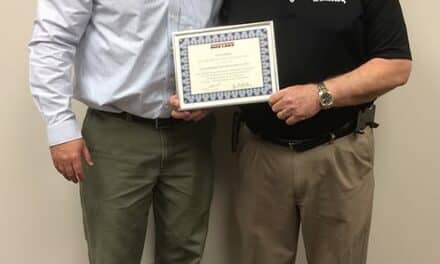Investment in advanced medical device testing technology from Rigel Medical is reaping benefits at one of Israel’s private hospitals. The 110-bed Herzliya Medical Center has been using the Rigel Uni-Therm electrosurgical analyzer for several years as part of a suite of equipment to undertake comprehensive testing and calibration of approximately 70 items of operating rooms and outpatient clinics radio frequency generators.
Capable of automating all required tests, the analyzer accurately measures the performance of equipment, including high-frequency leakage, high current, power output, and patient return plate alarm testing.
Its advanced capabilities have streamlined performance testing procedures as part of the planned in-service preventative maintenance programs the hospital undertakes, which are overseen by director of the biomedical department, Tameem Jaber. He estimates that the time taken to complete these procedures has been cut by an estimated 40% using the Uni-Therm when compared to the biomed test equipment the hospital previously used.
“Uni-Therm continues to contribute to raising test standards and delivering operational efficiencies,” Jaber says. “We can customize our auto-test sequences using the analyzer and can run through all the manufacturer’s recommended tests in under 10 minutes. This is significantly quicker and easier when compared to the biomed test equipment we used to use before turning to Rigel.”
Located north of Tel Aviv on the Mediterranean coast, the Herzliya Medical Center was the first facility of its kind in Israel to undertake heart surgery, neurosurgery, and endoscopic procedures among other complex operations. It has also led the way in the development of the country’s CT scanning technology, catheterization, in vitro fertilization, cytogenetic laboratory, and ICU capabilities.
Jaber explains that the adoption of the Uni-Therm, which connects to Rigel’s Med-eBase asset management software, meets the medical center’s requirements for the beneficial production of reports and certificates for the device under test, which can be stored on either a local or remote database using a CMMS developed by a local software company.
“Using the analyzer makes IEC 60601-2-2 testing less complicated and easier at the hospital,” he says. “The user-friendly screen on the unit provides step-by-step connection instructions and simple analysis data, which can be interpreted quickly to check the equipment under test is working properly.”
The Uni-Therm features onboard memory, test automation, comprehensive data management capabilities, and a range of in-built resistors. Moreover, USB technology improves connectivity to other equipment for the rapid downloading of test data and the uploading of the electrosurgical device’s power curves as well as test specific programs. Finally, output waveforms can be examined through a built-in scope output, which allows for confirmation of the desired waveform shape.




